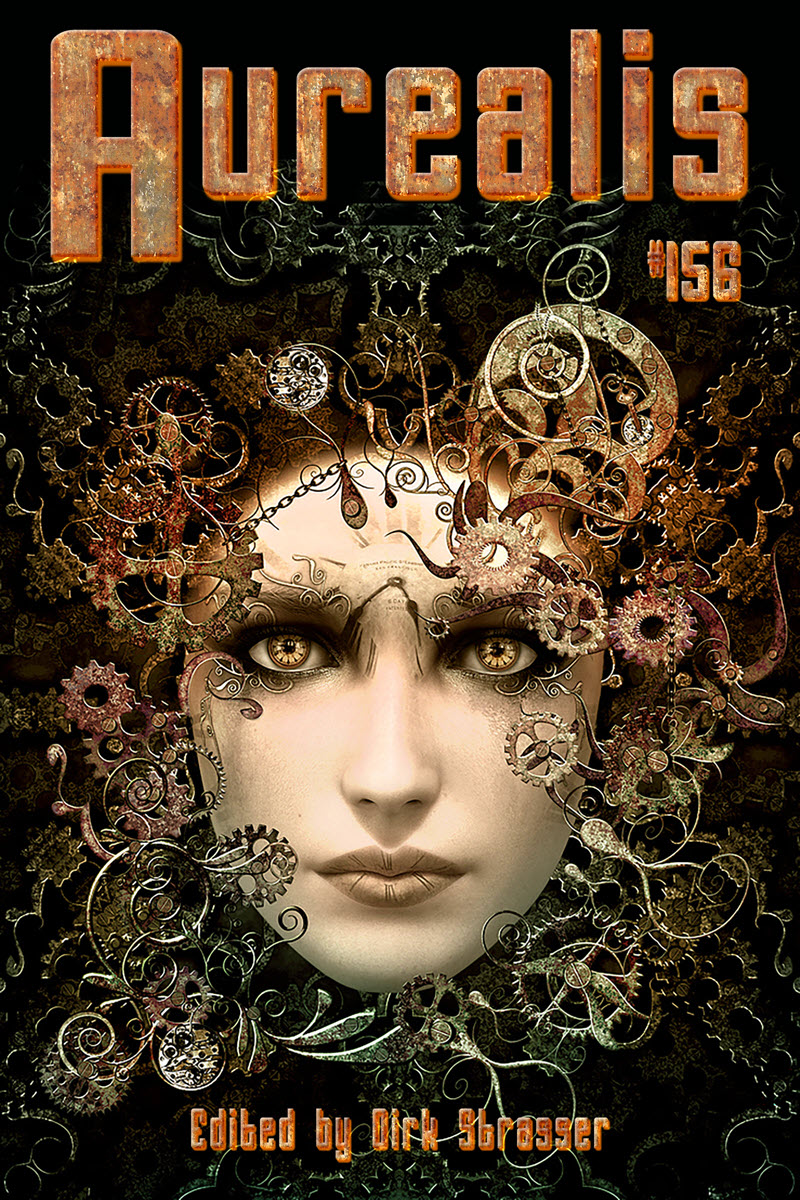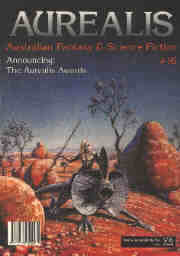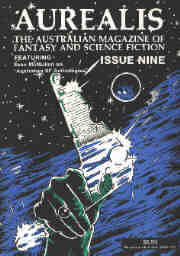Aurealis #156
$3.99
Visit the exotic and surprising new worlds in this issue of Aurealis: Scott Steensma’s laugh-out-loud ‘One Man Army’, James Rowland’s wonderfully rendered ‘Seven Minutes in Heaven’, and A T Sayre’s engaging first contact story ‘The Ambassadors’.
- From the Cloud — Dirk Strasser
- One Man Army — Scott Steensma
- Seven Minutes in Heaven — James Rowland
- The Ambassadors — A T Sayre
- Pioneering SF Women: Joan D Vinge—Fairytale Futurist — Lynne Lumsden Green
- Ernest Favenc’s White World in The Secret of the Australian Desert — Gillian Polack
- Science Fiction in the Suburbs — Lachlan Walter
Many of you would be aware of the proposed $2.17 billion purchase of publishers Simon & Schuster by Penguin Random House which would have created a publishing giant with 70% of the US literary and general fiction market.
The merger of the two publishers would have reduced the five major publishers to four—the other three being HarperCollins, Hachette Book Group and Macmillan. The US government didn’t think the purchase was a good idea for authors or readers and said it would ‘substantially lessen competition,’ so it blocked the merger earlier this month.
What’s fascinating is that the testimony in the court case this year has laid bare some of the mechanisms of how traditional publishing actually works. What caught my eye was a comment from the Macmillan CEO Don Weisberg, who when arguing against the merger, described publishing as ‘a business of gambling’. What made it even more interesting was that Penguin Random House CEO Markus Dohle arguing for the merger compared Penguin Random House to Silicon Valley ‘angel’ investors, saying, ‘We invest every year in thousands of ideas and dreams, and only a few of them make it to the top… Each book is unique and there’s a lot of risk.’
So the two opposing sides actually agree on the importance of luck in picking bestsellers.
The mega-selling SF author Stephen King testified as a witness for the government in the case, arguing that mergers in the publishing industry harm authors and are bad for the industry. He said that when he was an unknown author in the 70s, there were hundreds of imprints, competition was fierce, and he didn’t need an agent. Since then, the number of publishers has shrunk and with them the size of author advances and opportunities for new writers. ‘There comes a point,’ he said, ‘if you’re very, very, very fortunate, that you can stop following your bank account and follow your heart.’
In fact, Stephen King deliberately tested the importance of luck in publishing by writing five novels under the Richard Bachman pseudonym. In the eight years before Bachman was outed, Stephen King was a mega-seller while Bachman was a nobody. After he was outed, the Bachman book sales rocketed, quickly reaching 3 million copies. In his introduction to The Bachman Books Stephen King ruminates on the role of luck or accident in his own publishing success:
‘The fact that Thinner did 28,000 copies when Bachman was the author and 280,000 copies when Steve King became the author might tell you something, huh? Part of you wants to think that you must have been one hardworking SOB if you end up riding high in a world where people are starving, shooting each other, burning out, bumming out… but there’s another part that suggests it’s all a lottery, a real-life game show not much different from Wheel of Fortune or The New Price Is Right.’
What role does luck actually play in the publishing industry? Food for thought for all of us.
All the best from the cloud!
Dirk Strasser
From One Man Army by Scott Steensma:
‘So. You need an interspecies Intellectual Property expert.’
Portia Ortega sat back in her seat after speaking, her dark eyes holding the gaze of the man sitting opposite her. Her feet swung from the chair, her beaten-up red sneakers hanging a full inch above the thick blue carpet.
From Seven Minutes in Heaven by James Rowland:
People condemned their eternal spirit so that we could know the moment of the eclipse. This was the truth of our society. We turned our gaze from them. We spat at them in the street. When they died, we gave them no marker for their grave.
From The Ambassadors by A T Sayre:
Miram stood at the rail of the observation deck. With the docking and first contact ceremony imminent and the crew neck deep in their duties, she had been able to relax unbothered in here for over an hour. Her escorts hovered at attention across the room, but they never talked. They only interrupted her sense of solitude when she thought about them.
From Pioneering SF Women: Joan D Vinge—Fairytale Futurist by Lynne Lumsden Green:
In 1974, a short story was published in Orbit 14, edited by Damon Knight. Its name ‘Tin Soldier’ suggested that it was a retelling of the Hans Christian Andersen fairytale, but unlike any retelling written previously.
From Ernest Favenc’s White World in The Secret of the Australian Desert by Gillian Polack:
The importance of the worldbuilding in Ernest Favenc’s 1895 novel The Secret of the Australian Desert is hinted at on the title page, which contains an announcement ‘With Four Illustrations… and a Map’.
From Science Fiction in the Suburbs by Lachlan Walter:
In the English-speaking world, most of us live in the suburbs. Here in Australia, approximately 86% of us call them home; in America, 53%; in New Zealand, 75%; in Great Britain, 80%; and in Canada, 70%. However… cityscapes reign supreme in science fiction.





